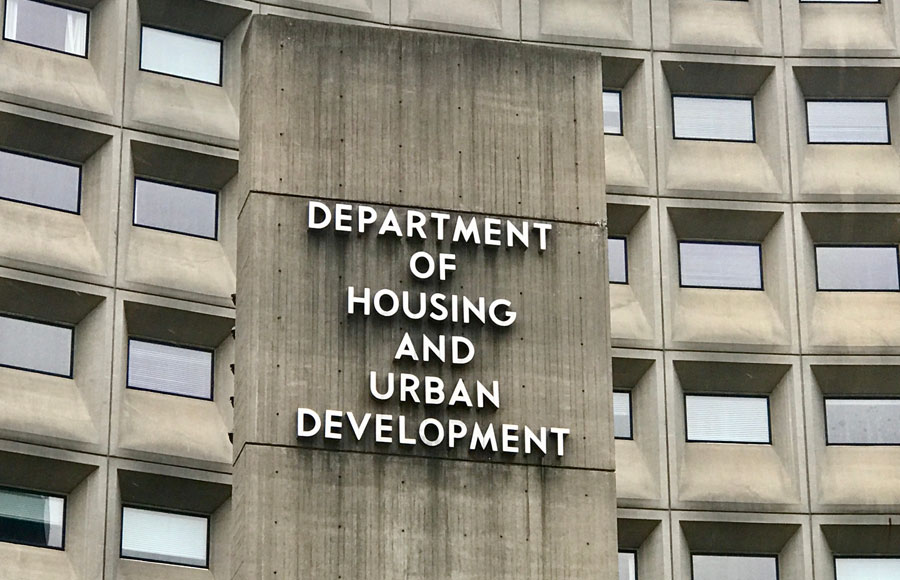Biden’s FHA Updates to Student Loan Debt Policies Are Anticipated To Help Students With Outstanding Loans Qualify for FHA Mortgage Financing

WASHINGTON, D.C. – Individuals who are experiencing student loan debt now have a better shot at qualifying for a home loan thanks to changes that the Biden Administration has made to federal mortgage lending rules. The Federal Housing Administration (FHA) recently announced changes to its student loan calculations that are anticipated to create an easier environment in which students who have outstanding school loans may nonetheless have greater access to affordable, single-family, FHA-insured mortgage financing.
The changes implemented by the FHA focus on doing away with a requirement where FHA mortgage lenders would “calculate a borrower’s monthly student loan payment as 1% of their outstanding student loan balance for loans that are not fully amortizing or are not in repayment.” Even students who were in deferment or forbearance were included in this requirement, as were those within the confines of an income-based repayment plan and were only making small monthly payments as a result.
Look at it like this: if a student has school loan debt in the amount of $100,000, makes a $60,000 annual income, and belongs to a family of three, they may only be paying off their student loan via an income-driven repayment plan in the amount of $245 a month. However, due to the FHA’s previous rules that apply 1% of the outstanding balance, an FHA-backed mortgage lender may be lead to believe that the student is actually paying $1,000 per month; based on the student’s overall debt and credit profile, this could count against them if attempting to secure a home loan.
The new FHA policy will now base the monthly payment on the actual amount of the student loan payment – in most cases much lower amount than 1% of the total balance – which would, in turn, assist individuals saddled with student debt to meet minimum eligibility requirements for an FHA-insured mortgage. And, as is possible with an income-based repayment plan, the student’s monthly payment is zero, the “assumed” payment will be calculated at only 0.5% of the loan balance.
With this change, the updated FHA student loan debt calculation policy is more in alignment with those of other housing agencies, and makes the overall process easier and more simplified for those who have student loans, according to Department of Housing and Urban Development (HUD) Secretary Marcia Fudge.
“Homeownership is the cornerstone of the American Dream and the best way to build generational wealth,” she said. “I am proud that FHA is taking action to make it easier for borrowers with student loan debt to qualify for a federally insured mortgage. This new policy will make a big difference for individuals throughout our nation and is another step in our mandate to promote equity and opportunity for homeownership.”
Lenders have the options to implement the changes right away, but are required to implement them for FHA case numbers assigned on or after August 16, 2021.
According to a statement by Mortgage Bankers Association President and CEO Bob Broeksmit, the changes to the FHA student loan policy will enable many people to qualify for their first-ever home loan who otherwise may not have done so.
“It will also allow lenders to underwrite an FHA mortgage using more accurate estimates of a borrower’s actual monthly student debt payments,” he said. “FHA’s previous rules overestimated student loan payments, denying access to FHA mortgages for many creditworthy borrowers.”
U.S. Senator Sherrod Brown (D-OH), Chairman of the U.S. Senate Committee on Banking, Housing, and Urban Affairs, was also highly supportive of the new FHA loan policy, saying that it will provide a path to home ownership for many minority families that were normally impacted by previous student loan rules.
“It is critical that we reflect on all of the ways that racial discrimination is woven into our society, especially in our housing system. Too many generations of Black families are locked out of the opportunity to get an affordable mortgage, own their own home, and build wealth to pass on to their children and grandchildren,” he said. “I commend HUD and Secretary Fudge for taking this first step to address inequities in our housing system and look forward to continuing to work together to increase access to homeownership and address disparities.”
The Biden Administration has recently also begun to hold hearings on reviewing programs that govern major federal student loan repayment and forgiveness programs, including overhauling how income-based repayment plans work and offering student loan forgiveness for people who work for at least 10 years in qualifying public service or who have a medical condition that prevents from being gainfully employed.

